
After Deadly Raid, Pentagon Weighs Withdrawing Almost All Commandos From Niger
Three Defense Department officials said the plans, if approved by Defense Secretary Jim Mattis, would also close military outposts in Tunisia, Cameroon, Libya and Kenya, as well as seven of the eight American elite counterterrorism units operating in Africa.
The shift in forces is part of the Pentagon's defense strategy to focus on threats from China and Russia. But they represent a more severe cut of Special Operations forces in Africa than initially expected, leaving a lasting, robust military presence primarily in Somalia and Nigeria.

With the reassignment of the counterterrorism teams, American troops could also lose the ability to partner with local forces who act as surrogates to help track and hunt down insurgents. It could also strip those local forces of some of the more advanced American gear they are given when teamed up with American troops.
The military’s Special Operations Command is authorized to spend up to $100 million annually to support partner forces around the world under the program that the counterterrorism teams fall under, known as 127e. The command spent $80 million during the 2017 fiscal year to finance 21 of the programs worldwide, Gen. Tony Thomas, the Special Operations commander, told Congress in February.
The Pentagon’s defense strategy, issued in January, represents a renewed shift from fighting the insurgent wars of the last 16 years to large state-on-state conflicts.
To comply with the proposed change, the United States Africa Command will reassign hundreds of American troops that are currently spread across the continent. That move is expected to be carried out over the next 18 to 36 months, but one Defense Department official said the timeline was likely to be accelerated once the proposal was approved and final.
In an interview with The New York Times in July, Gen. Thomas D. Waldhauser, head of the Africa Command, said other training teams could still rotate in periodically for days or weeks of instruction if the Pentagon reduced its permanent troop presence in Africa.
He said those teams could be brought in from National Guard units from California, Indiana, Michigan and other states.
"We won’t walk away and abandon this,” General Waldhauser said.
The defense strategy that was unveiled in January, coupled with the deadly attack in Niger, has fast-tracked decisions by Mr. Mattis and Gen. Joseph F. Dunford Jr., the chairman of the Joint Chiefs of Staff, to end some of the missions in Africa, military officials have said.
General Dunford and Mr. Mattis, a former four-star Marine general, had little experience working directly with commando units when they were younger officers progressing up the chain of command. That has fostered an institutional skepticism about the American military’s increasing reliance on Special Operations Forces in recent years, like those spread across Africa.
In the interview, General Waldhauser said that other combatant commands, such as those that cover the Middle East and the Pacific, will face similar changes. But one Defense Department official familiar with the deliberations said the Pentagon’s changes would largely affect the Africa Command, which was created only in 2007, years after the wars in Iraq and Afghanistan got underway.
Another Defense Department official said the move to close the commando outposts would greatly diminish American influence in Africa and could prove to be shortsighted.
The first official, however, said local African forces had become increasingly capable in fighting extremists on their own, and do not need permanent assistance from American troops, at least in some areas. Additionally, that official said, the American commandos could return if necessary.
American troops on the ground in Africa have already found their missions scaled back by stringent restrictions placed on Special Operations forces following the Oct. 4 ambush in Niger. Extremists linked to the Islamic State attacked the Green Beret team following its search for a militant near the Mali border, leading to an hourslong gunfight that killed four American soldiers, their translator and four Nigerien troops. A Pentagon investigation found failures at every level of the mission.
Since then, American commandos have been refocused strictly to advising and assisting missions from within the walls of their remote bases. During a news conference on Tuesday, Mr. Mattis said the Pentagon was changing training requirements for Special Operations teams to be better prepared for missions in Africa.
Under the new plans, American forces would most likely work on limited missions in certain countries in Africa for what are called Joint Combined Exchange Training programs. The missions, conducted in nonhostile environments, last 30 to 60 days.
Many American commandos in Africa are currently on six-month deployments that seek to forge relationships and provide training that has a lasting impact on local troops.
An Africom spokesman referred questions about the plans to the Pentagon. As of yet, said Maj. Karl J. Wiest, "there has been no direction at this time to adjust forces operating in any combatant command.”
Alice Hunt Friend, a senior fellow at the Center for International and Strategic Studies, said the proposal’s impact depended on whether the Pentagon continued to prioritize certain missions — whether aerial reconnaissance out of drone bases like the one in Agadez, Niger, where roughly 400 troops are based, or supplying local forces with weapons and equipment.
She expressed doubt that local governments would continue to sustain pressure against extremist groups without support from American troops in the ground fight.
"The idea that capitals are going to project governance into the sparsely populated areas is just ahistorical,” Ms. Friend said. "If the theory that sustained pressure on militant groups keeps them from being able to topple governments, then we should see some serious challenges in the wake of U.S. reductions.”
There are about 1,200 Special Operations forces in Africa. The proposal calls for cutting them — and supporting troops — by 50 percent over the next three years.

Monday September 3, 2018
The Pentagon is considering withdrawing nearly all American commandos from Niger in the wake of a deadly October ambush that killed four United States soldiers.
The proposal does not say that any additional troops would return to Africa even as Special Operations units gradually draw down. Officials said that could reverse progress that has been made against Al Qaeda and Islamic State affiliates, while diminishing alliances across Africa as both Russia and China move to increase their influence.
With the reassignment of the counterterrorism teams, American troops could also lose the ability to partner with local forces who act as surrogates to help track and hunt down insurgents. It could also strip those local forces of some of the more advanced American gear they are given when teamed up with American troops.
The military’s Special Operations Command is authorized to spend up to $100 million annually to support partner forces around the world under the program that the counterterrorism teams fall under, known as 127e. The command spent $80 million during the 2017 fiscal year to finance 21 of the programs worldwide, Gen. Tony Thomas, the Special Operations commander, told Congress in February.
The Pentagon’s defense strategy, issued in January, represents a renewed shift from fighting the insurgent wars of the last 16 years to large state-on-state conflicts.
To comply with the proposed change, the United States Africa Command will reassign hundreds of American troops that are currently spread across the continent. That move is expected to be carried out over the next 18 to 36 months, but one Defense Department official said the timeline was likely to be accelerated once the proposal was approved and final.
In an interview with The New York Times in July, Gen. Thomas D. Waldhauser, head of the Africa Command, said other training teams could still rotate in periodically for days or weeks of instruction if the Pentagon reduced its permanent troop presence in Africa.
He said those teams could be brought in from National Guard units from California, Indiana, Michigan and other states.
"We won’t walk away and abandon this,” General Waldhauser said.
The defense strategy that was unveiled in January, coupled with the deadly attack in Niger, has fast-tracked decisions by Mr. Mattis and Gen. Joseph F. Dunford Jr., the chairman of the Joint Chiefs of Staff, to end some of the missions in Africa, military officials have said.
General Dunford and Mr. Mattis, a former four-star Marine general, had little experience working directly with commando units when they were younger officers progressing up the chain of command. That has fostered an institutional skepticism about the American military’s increasing reliance on Special Operations Forces in recent years, like those spread across Africa.
Ads By Google
Another Defense Department official said the move to close the commando outposts would greatly diminish American influence in Africa and could prove to be shortsighted.
The first official, however, said local African forces had become increasingly capable in fighting extremists on their own, and do not need permanent assistance from American troops, at least in some areas. Additionally, that official said, the American commandos could return if necessary.
American troops on the ground in Africa have already found their missions scaled back by stringent restrictions placed on Special Operations forces following the Oct. 4 ambush in Niger. Extremists linked to the Islamic State attacked the Green Beret team following its search for a militant near the Mali border, leading to an hourslong gunfight that killed four American soldiers, their translator and four Nigerien troops. A Pentagon investigation found failures at every level of the mission.
Since then, American commandos have been refocused strictly to advising and assisting missions from within the walls of their remote bases. During a news conference on Tuesday, Mr. Mattis said the Pentagon was changing training requirements for Special Operations teams to be better prepared for missions in Africa.
Under the new plans, American forces would most likely work on limited missions in certain countries in Africa for what are called Joint Combined Exchange Training programs. The missions, conducted in nonhostile environments, last 30 to 60 days.
Many American commandos in Africa are currently on six-month deployments that seek to forge relationships and provide training that has a lasting impact on local troops.
An Africom spokesman referred questions about the plans to the Pentagon. As of yet, said Maj. Karl J. Wiest, "there has been no direction at this time to adjust forces operating in any combatant command.”
Alice Hunt Friend, a senior fellow at the Center for International and Strategic Studies, said the proposal’s impact depended on whether the Pentagon continued to prioritize certain missions — whether aerial reconnaissance out of drone bases like the one in Agadez, Niger, where roughly 400 troops are based, or supplying local forces with weapons and equipment.
She expressed doubt that local governments would continue to sustain pressure against extremist groups without support from American troops in the ground fight.
"The idea that capitals are going to project governance into the sparsely populated areas is just ahistorical,” Ms. Friend said. "If the theory that sustained pressure on militant groups keeps them from being able to topple governments, then we should see some serious challenges in the wake of U.S. reductions.”
There are about 1,200 Special Operations forces in Africa. The proposal calls for cutting them — and supporting troops — by 50 percent over the next three years.



 0
0 
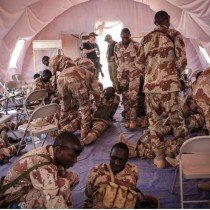
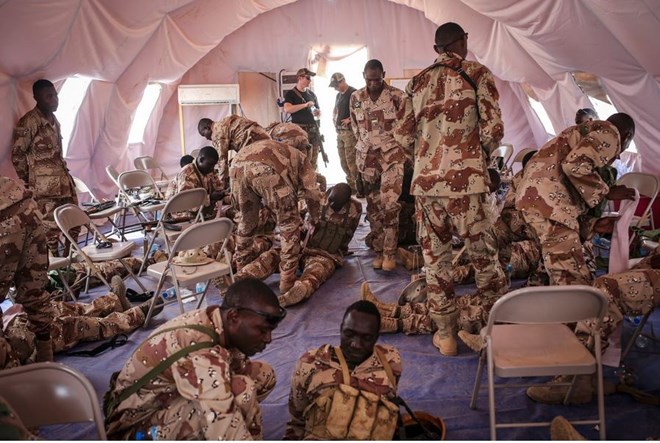







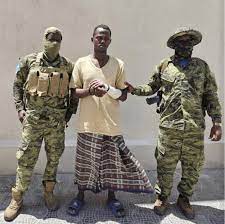


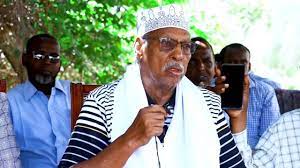
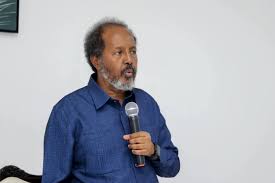
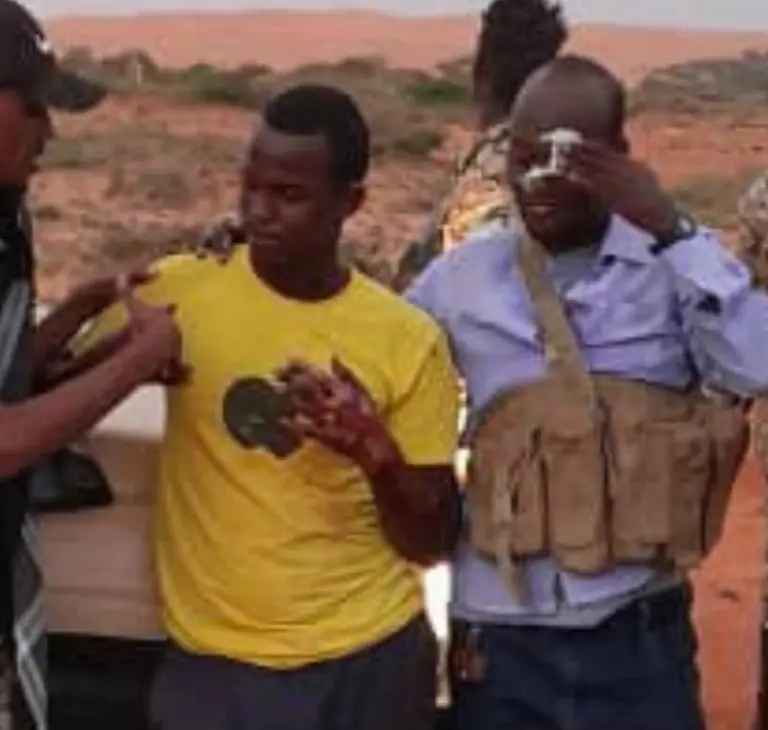
After Deadly Raid, Pentagon Weighs Withdrawing Almost All Commandos From Niger
Three Defense Department officials said the plans, if approved by Defense Secretary Jim Mattis, would also close military outposts in Tunisia, Cameroon, Libya and Kenya, as well as seven of the eight American elite counterterrorism units operating in